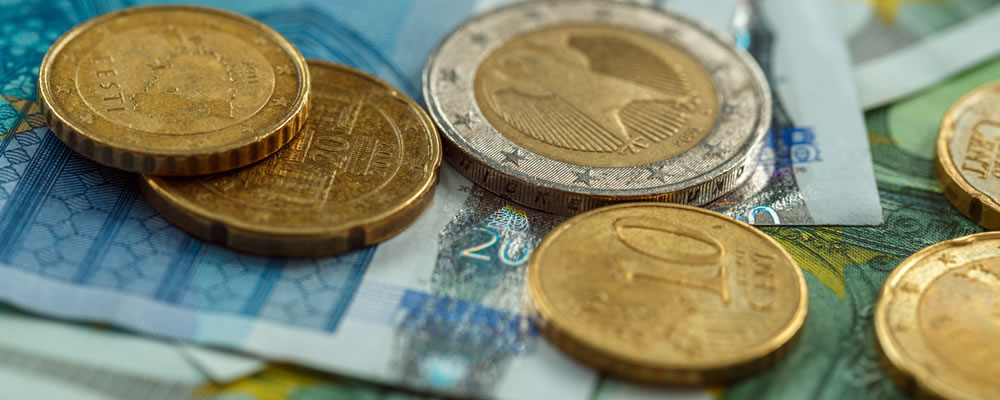Pound Sterling Euro (GBP/EUR) Exchange Rate Flat After Fed’s Surprise Cut
The Pound Sterling Euro (GBP/EUR) exchange rate remained flat, leaving the pairing trading at around €1.1462.
The pairing remained muted today as markets attempted to stabilise after yesterday’s surprise move from the US Federal Reserve.
Coronavirus fears prompted the US central bank to unexpectedly slash interest rates by 50 basis points.
However, the rate cut fuelled further anxiety about the impact of Covid-19, and allowed the single currency to benefit from broad-based US Dollar (USD) weakness.
Euro (EUR) Muted as Coronavirus Weighs on Services PMI
The German services PMI revealed that business activity growth fell to a three-month low in February as foreign demand slumped.
This left the pairing flat, as the pace of job creation in the bloc’s largest economy was left near a four-year low.
The German services PMI registered at 52.5, down from January’s five month high of 54.2, and the lowest reading since November.
Commenting on this morning’s data, Principal Economist at IHS Markit, Phil Smith said:
‘Though the February data revealed a clear and immediate impact from the outbreak of coronavirus in China on foreign client demand, the domestic market had looked to be holding firm, helping the service sector achieve further – albeit slower – growth. But given the spread of Covid-19 to many other parts of the world including Germany – and the subsequent financial market reaction, it would seem that this domestic resilience is about to be broken.’
Meanwhile, further services PMI data showed the Eurozone as a whole reached a six-month high in February. However, this did little to boost the single currency against the Pound.
Sterling (GBP) Flat on UK Services’ ‘Pleasing Performance’
UK PMI data revealed the country’s services sector slowed in February, with weaker rises in business activity and new work.
While the increase in business activity was slower, it did add to signs of a rebound in customer demand following December’s general election.
The services PMI slipped from January’s 53.9 to 53.2 in February, but remained the second highest since September 2018. This likely provided some support, and left the Pound flat against the Euro.
Commenting on this, Duncan Brock, Group Director at the Chartered Institute of Procurement & Supply noted:
‘The biggest driver in the UK economy put in a pleasing performance in February, retaining its growth trajectory and levels of new orders, even if some of the momentum had leaked away. With optimism at the highest levels since March 2015, businesses were also confident enough to pass on their rising costs for salaries and fuel to consumers and at the highest rate for over two years.
‘However, new orders were largely driven by domestic sales, as some EU clients continued to sidestep business with the UK because of lingering Brexit concerns. The ripple effect of Covid-19 fears also affected orders from the Asia region, putting a dampener on new business and subsequently levels of job creation as businesses became cautious about their sales pipeline.’
Pound Euro Outlook: Will BoE’s Governor Mark Carney Signal Easing?
Looking ahead to Thursday, the Euro (EUR) could make gains against the Pound (GBP) following the release of German data.
If Germany’s PMI data reveals the country’s construction sector has expanded at a faster rate than expected, the single currency will rise.
Meanwhile, the Pound could see some movement following a speech from Bank of England (BoE) Governor, Mark Carney.
If Carney is overly cautious and hints at monetary policy easing following yesterday’s unexpected rate cut from the US Federal Reserve, the Pound Euro (GBP/EUR) exchange rate will slump.



